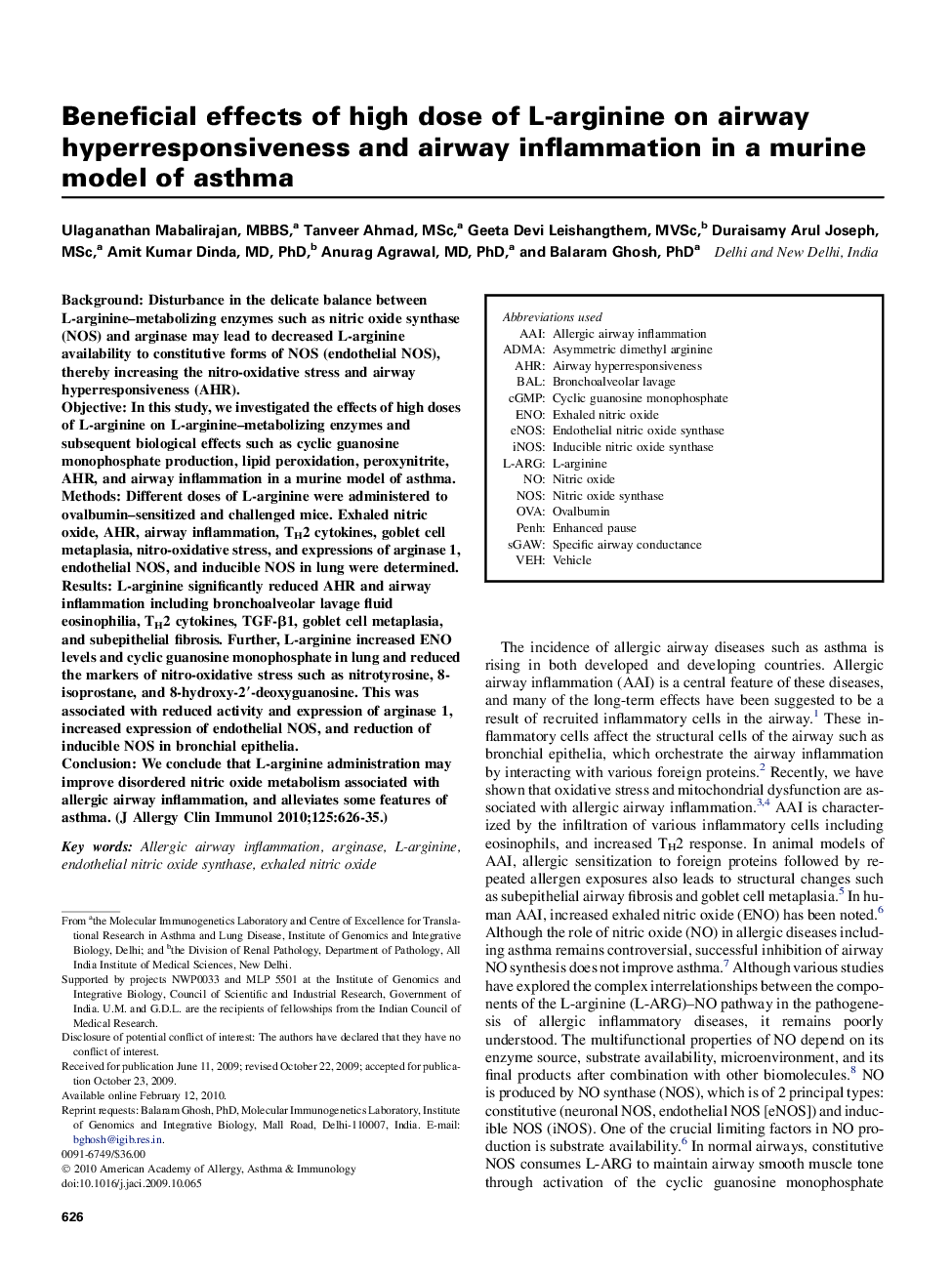| Article ID | Journal | Published Year | Pages | File Type |
|---|---|---|---|---|
| 3199950 | Journal of Allergy and Clinical Immunology | 2010 | 10 Pages |
BackgroundDisturbance in the delicate balance between L-arginine–metabolizing enzymes such as nitric oxide synthase (NOS) and arginase may lead to decreased L-arginine availability to constitutive forms of NOS (endothelial NOS), thereby increasing the nitro-oxidative stress and airway hyperresponsiveness (AHR).ObjectiveIn this study, we investigated the effects of high doses of L-arginine on L-arginine–metabolizing enzymes and subsequent biological effects such as cyclic guanosine monophosphate production, lipid peroxidation, peroxynitrite, AHR, and airway inflammation in a murine model of asthma.MethodsDifferent doses of L-arginine were administered to ovalbumin–sensitized and challenged mice. Exhaled nitric oxide, AHR, airway inflammation, TH2 cytokines, goblet cell metaplasia, nitro-oxidative stress, and expressions of arginase 1, endothelial NOS, and inducible NOS in lung were determined.ResultsL-arginine significantly reduced AHR and airway inflammation including bronchoalveolar lavage fluid eosinophilia, TH2 cytokines, TGF-β1, goblet cell metaplasia, and subepithelial fibrosis. Further, L-arginine increased ENO levels and cyclic guanosine monophosphate in lung and reduced the markers of nitro-oxidative stress such as nitrotyrosine, 8-isoprostane, and 8-hydroxy-2′-deoxyguanosine. This was associated with reduced activity and expression of arginase 1, increased expression of endothelial NOS, and reduction of inducible NOS in bronchial epithelia.ConclusionWe conclude that L-arginine administration may improve disordered nitric oxide metabolism associated with allergic airway inflammation, and alleviates some features of asthma.
